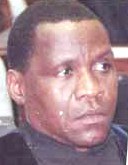'Mozambique needs more judges'
Speaking at a National Conference on Access to Justice, organised by the Mozambican Human Rights League (LDH), Pondja said the efficiency of the courts was the major challenge to face in ensuring that justice was accessible to Mozambicans under acceptable conditions. Court rulings should not only be fair, but should be "taken in a reasonable time".
Pondja warned that access to justice and to the courts would be "a mirage if people don't have access to the laws. This is even more relevant when we consider that our legal system is based on the tradition of Roman law, resting on written laws and using technical, even archaic terms which are not always understandable even to citizens with a high level of formal education".
In order to exercise their constitutional right to access to justice, he said, people needed to know their rights and duties. Pondja said he believed that civil society organisations have a key role to play in raising public understanding of the laws.
Pondja noted that the courts do not yet cover the entire country. However, the government has made "visible efforts" in this area and now district courts are functioning in 120 of Mozambique's 128 districts.
"The great challenge is to achieve total coverage of the districts", he said.
Pondja warned that justice does not come cheap. Judges, and other law officials need to be paid decently, court buildings must be maintained, and equipment must be purchased. He however said he did not believe that the state should pay for all the costs, providing a system that was entirely free for its users.
"Because the judiciary provides a public service, it makes sense for the state to pass on some of costs of this service to its beneficiaries", Ponja said. Furthermore, an entirely free system would "open the doors of the courts to irresponsible litigation", which would clog up the system and delay the trials of serious cases.
"The challenge is thus to find a point of balance between payment for the public service provided by the judiciary and the need to guarantee access to the courts to all citizens on a footing of equality, regardless of the economic condition of each person", he said.
Pondja said he also wanted to see legal reform. Clearing up the ancient and often obsolete legal codes inherited from Portuguese colonial times was needed, in order to remove the methods that can currently be used to deny justice, or even to avoid compliance with court rulings.
"Reform should result in a legal framework that allows fluidity in dealing with cases, and discourages litigation that is irresponsible or in bad faith", he said.
Ponja concluded with a call on judges to understand the local customs of the place where they worked. Magistrates were faced with "the constant challenge to reconcile formal law and customary law". For a decision that is perfectly legal in terms of written law, might be regarded as "manifestly unjust" in the cultural environment where a district judge operates.
Ozias Pondja was appointed as President of the Supreme Court by President Armando Guebuza in April 2009.
Pondja has a distinguished career in the Mozambican judicial system. He was chief attorney in Zambezia province in the late 1970s, and was presiding judge in the provincial courts, first in Cabo Delgado and then in Zambezia. He was a member of the Supreme Court for a decade prior to being appointed President.

